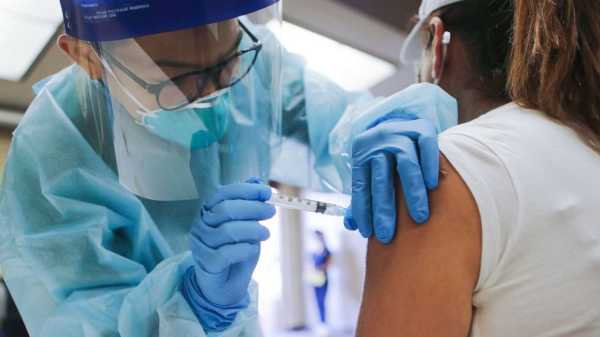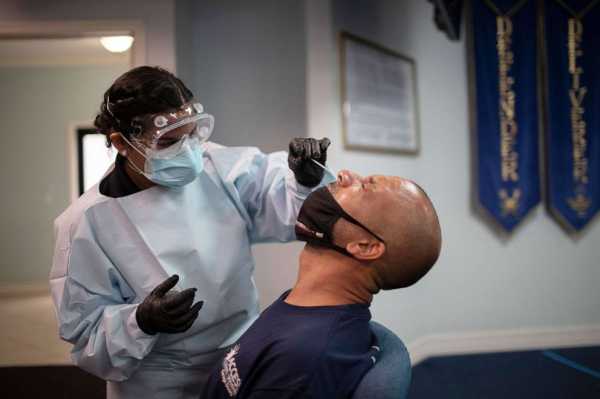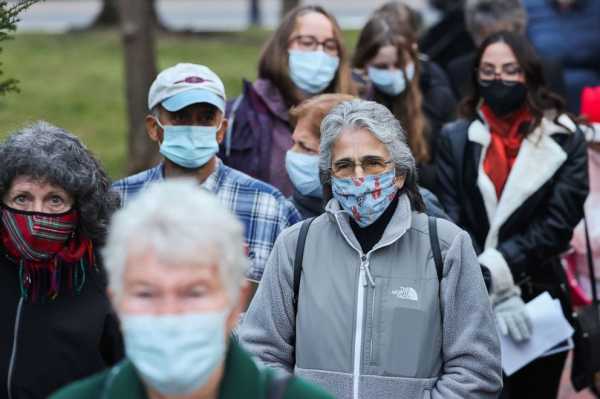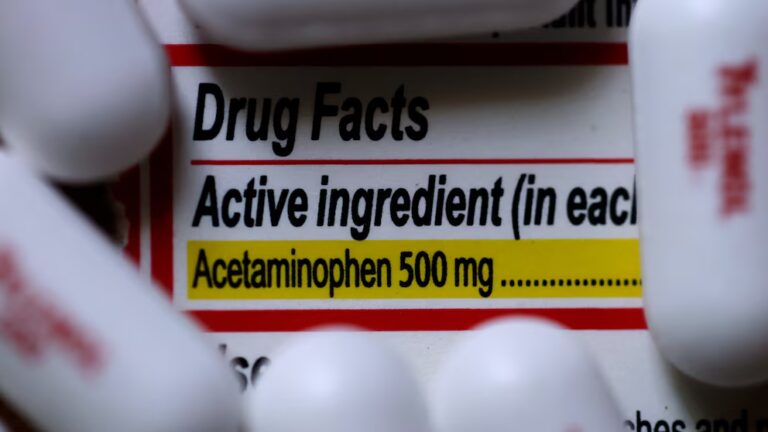Americans will soon be gathering for Thanksgiving, celebrating the holiday semi-normally for the first time in more than two years.
However, it comes at a time when respiratory viruses are surging across the United States. According to data from the Centers for Disease Control and Prevention, cases of respiratory syncytial virus, or RSV, have risen from 14,824 the week ending Oct. 29 to 16,512 the week ending Nov. 5.
Similarly, the CDC estimates that cases of influenza increased by 1.6 million cases last week, now totaling over 4.4 million this season.
MORE: Flu cases, hospitalizations, deaths continue to surge across US
Additionally, although COVID-19 infections have plateaued in recent months, CDC data shows that transmission rates in previous years picked up around late November.
As families gather, they may wonder if they should make sure they test negative beforehand, mask while with their loved ones, invite unvaccinated family members — or even gather at all?
ABC News spoke to public health experts who offered advice on how to have as safe of a holiday celebration as possible.
"We want to keep you safe during this holiday time period, if it's RSV, if it's flu, if it's COVID," Dr. Rebecca Weintraub, a physician and assistant professor in the department of global health and social medicine at Harvard Medical School, told ABC News. "All of the routine viruses are showing their muscle this season. They are ready and prepared, and we need to be just as prepared so that we can gather as much as possible in person with our loved ones."
Make sure you're up to date on your vaccines
The experts recommend before gathering being up to date on COVID-19 vaccines and flu shots.
For Americans aged 5 and older, they can receive the bivalent booster, which protects against BA.4 and BA.5, subvariants of the original omicron variant. For those under age 5, only the primary vaccine series is available.

A nurse administers a flu vaccination shot to a woman at a free clinic, Oct. 14, 2020, in Lakewood, Calif.Mario Tama/Getty Images
For the flu, the CDC recommends everyone over 6 months old get vaccinated. If a child is aged 8 or younger and has never received a flu vaccine dose better, they should consider getting two doses.
"I think a lot of people are going to be seeing their parents," Dr. Perry Halkitis, dean of Rutgers School of Public Health, told ABC News. "And people my age have older parents. Older people are more likely to succumb to the ravages of COVID-19. So, getting boosted as an approach to protect your parents seems like a pretty good idea to me."
Weintraub suggested if anyone is gathering with unvaccinated people to spend time outside, which reduces the risk of transmission.
MORE: LA County recommends indoor masking after increase in COVID cases
"If you are concerned that you may be around those that have not completed their vaccination course or have chosen not to be vaccinated or cannot be vaccinated, we would recommend congregating outside, bringing a table outside to have an early dessert, for example, running a family game outside playing football outside," she said.
Consider getting a rapid test before gathering
Before attending a Thanksgiving gathering, the experts recommend that Americans consider taking a rapid test.
Rapid at-home tests are also known as antigen tests. They look for antigens, or proteins from the coronavirus, which are different than polymerase chain reaction (PCR) tests that look for genetic material from the virus.
"Just make sure if you're going to test, test as close to the event as you possibly can," Dr. Anne Rimoin, a professor of epidemiology at the University of California Los Angeles Fielding School of Public Health, told ABC News. "That will be helpful in reducing the spread of this virus."

A health care worker use a nasal swab to test Eric Rodriguez for COVID-19 at the Koinonia Worship Center and Village, July 22, 2020, in Pembroke Park, Fla.Joe Raedle/Getty Images
Weintraub also recommended checking the expiration dates because the U.S. Food and Drug Administration extended the expiration dates for several brands of at-home tests.
Don't attend dinner if you feel sick
The experts recommend staying home if you have any symptoms including coughing, sore throat, sneezing, runny nose or fever.
This is because COVID, flu and RSV all predominantly spread the same way — by coming into contact with respiratory droplets from the nose and throat of infected people that are expelled when they cough or sneeze.
"It's better not to give the gift of an infection to someone over a holiday that could really be serious for them, even if it's not serious for you," Rimoin said.
MORE: RSV hospitalizations in seniors much higher than any point in prior seasons
Halkitis said he had to follow this advice three weeks ago when he was feeling congested. At first, he thought he was just a little under the weather.
"At some point, some synapse fired in my brain and said, maybe you should actually test yourself and, lo and behold, it was positive for COVID-19," he said. "I stayed home the whole following week. I didn't go to work or anything, not because I was feeling horrible. I could have worked perfectly fine, but I took a responsibility not to infect people."
Halkitis continued, "So, if people are feeling sick, even slightly sick, even if they even if they test positive and have no symptoms, they should stay home."
Wear a mask indoors
Although the public appetite for mask wearing is low, experts recommend wearing masks in indoor crowded spaces before attending the event.
People can also consider wearing a mask during the holiday if they are near a high-risk individual.

A crowd of people wearing masks after a show ended at the Patchogue Theatre for the Performing Arts, Dec. 21, 2021, in Patchogue, N.Y.Newsday Llc/Newsday via Getty Images
"Masks are great tools," Rimoin said. "Masks will be able to prevent spread of respiratory pathogens if worn correctly."
She continued. "I think it's important that people go back to the basics about how we protect ourselves using some basic public health measures. They work for COVID-19, they work for RSV and they work for influenza, and really any respiratory virus."
Ventilation and handwashing
Experts recommend making sure that on the day of the event, the room is properly ventilated, and guests practice good handwashing, thoroughly with soap and water.
Ventilation can include opening doors and windows, if the weather isn't too cold, or buying air filters.
MORE: Mom shares dangers of RSV as 7-month-old is hospitalized
"Open windows, open doors, if you're in a place that is warm," Rimoin said. "And if you aren't, as many people aren't right now, you can do a lot to improve ventilation. You can get HEPA filters."
High efficiency particulate air filters can remove at least 99.97% of airborne particles, according to the Environmental Protection Agency.
Halkitis also suggested having hand sanitizer readily available, explaining, "I'd have it so that all the reminders are there for people to actually undertake these health behaviors while they're in the home with each other."
Sourse: abcnews.go.com






